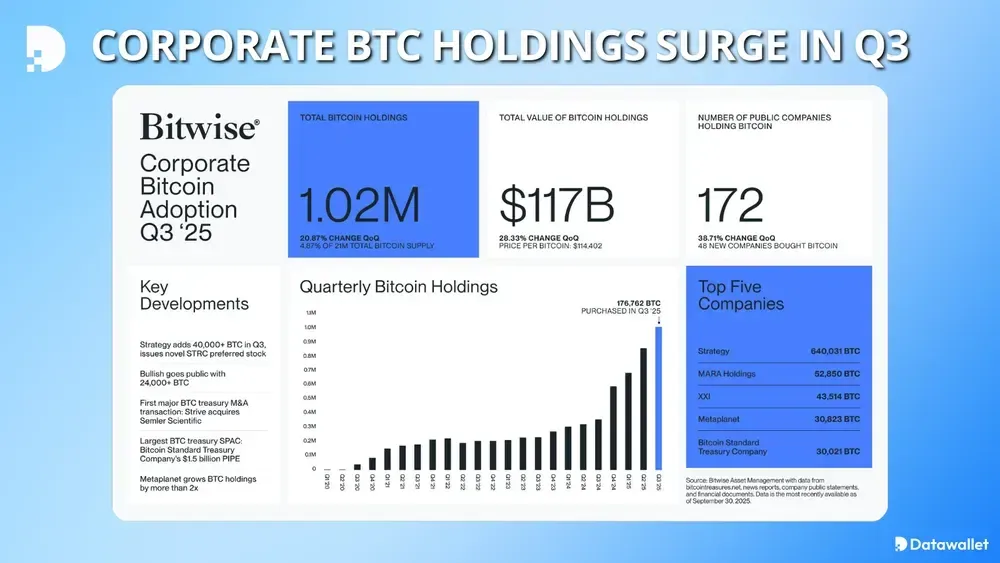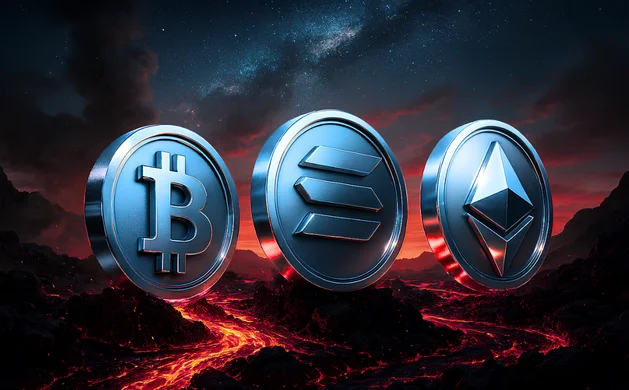Ethereum Activates Fusaka Upgrade on Sepolia Testnet

GM. Ethereum’s Fusaka upgrade went live on the Sepolia testnet, testing PeerDAS and higher gas limits ahead of its expected December 3 mainnet launch.
Meanwhile, Binance defended its listing practices amid project backlash, Sam Bankman-Fried blamed politics for his arrest, and Japan moved to criminalize crypto insider trading.
Upgrades, allegations, and regulations are setting the tone today. 👇
Ethereum Activates Fusaka Upgrade on Sepolia Testnet
Ethereum’s Fusaka upgrade went live yesterday on the Sepolia testnet, marking the second phase in its three-stage rollout before mainnet. The deployment tests PeerDAS, higher gas limits, and data handling improvements aimed at expanding scalability across Ethereum’s growing Layer 2 ecosystem.
Developers said the Sepolia test follows a successful Holesky activation earlier this month, with the final rehearsal on Hoodi set for October 28. If no issues arise, Fusaka will go live on Ethereum’s mainnet December 3, completing the network’s final major upgrade of 2025.
The update raises the block gas limit to 60 million and adds 12 Ethereum Improvement Proposals focused on throughput and validator efficiency. PeerDAS, Fusaka’s central feature, lets validators verify small data segments from peers instead of entire blobs, sharply reducing bandwidth demand.
Consensys engineers said node stability under 60M-gas blocks has held steady in testing, with hardware and network configurations performing as expected. Ethereum client teams now expect Fusaka to lower transaction costs for institutions while pushing Layer 2 networks toward cheaper, faster rollups.
Binance Defends Listing Process Amid Allegations
Binance denied profiting from token listings after Limitless Labs’ CEO accused it of demanding excessive compensation. The exchange called CJ Hetherington’s claims “false and defamatory,” adding that confidential discussions were illegally disclosed to the public. Executives reiterated that Binance does not charge listing fees and that refundable deposits exist for security purposes.
The dispute sparked debate across the crypto industry over opaque exchange practices and power dynamics in token launches. Binance said it reserves legal options but later apologized for overly combative communication with users. Analysts said the controversy highlights persistent tensions between centralized platforms and emerging projects seeking exchange visibility.
Sam Bankman-Fried Says Arrest Was Politically Driven
FTX founder Sam Bankman-Fried alleged his 2022 arrest stemmed from political bias following donations to Republican lawmakers. Writing via an associate, he claimed the Biden administration sought to silence him ahead of testimony on crypto legislation. Bankman-Fried added that then-SEC Chair Gary Gensler’s missing internal messages may have concealed coordination between regulators and prosecutors.
Investigators later confirmed that an automated data policy wiped Gensler’s device during a critical enforcement period. SBF, now serving a 25-year sentence, continues to appeal his conviction while seeking clemency from President Trump. His remarks reignited questions over regulatory transparency and political influence in the government’s approach to cryptocurrency enforcement.
Japan Plans Ban on Crypto Insider Trading
Japan’s Financial Services Agency is drafting rules to criminalize insider trading based on non-public cryptocurrency information, Nikkei reported. The proposed legislation would authorize regulators to investigate and penalize offenders proportionally to illicit profits. Amendments are expected to expand oversight under the Securities and Exchange Surveillance Commission, aligning digital assets with securities standards.
Officials said growing institutional participation makes stronger governance essential for maintaining market fairness and investor confidence. The lack of clear insider definitions for tokens without issuers remains a major regulatory challenge. Authorities aim to finalize the framework soon as Japan deepens oversight of its steadily expanding crypto sector.
Data of the Day
Corporate ownership of Bitcoin surged 38% in the third quarter as 48 public companies added the asset to treasuries. Bitwise reported 172 firms now hold over one million BTC collectively, with total corporate reserves valued near $117 billion. Analysts said institutional accumulation underscores Bitcoin’s maturation as a preferred long-term store of value.
Industry experts added that corporate buyers accumulate mainly through over-the-counter markets to avoid price disruption. Growing participation from miners, fintechs, and sovereign funds is expected to drive sustained upward pressure on demand. Analysts said these inflows illustrate expanding mainstream confidence and the institutional normalization of digital-asset balance sheet strategies.

More Breaking News
- Roger Ver settled with the DOJ for $50 million after admitting he failed to report Bitcoin holdings upon renouncing US citizenship.
- Celsius secured a $299.5 million settlement from Tether, ending a year-long $4.3 billion dispute over alleged premature Bitcoin liquidations.
- Two MIT brothers accused of stealing $25 million via a 12-second Ethereum exploit face trial in a landmark crypto fraud case.
- The Ethereum Foundation deployed 2,400 ETH through Morpho, expanding its DeFi treasury management strategy and emphasizing open-source, yield-bearing protocols.
- NYC Mayor Eric Adams established the Office of Digital Assets and Blockchain Technology to advance crypto adoption before leaving office in January.
- Tether’s USDT0 and XAUT0 launched on Solana via Legacy Mesh, merging stablecoin and tokenized-gold liquidity across multiple omnichain networks.
- The UK Electoral Commission will update its crypto donation guidance after Reform UK reportedly received the country’s first crypto contribution.
- Kraken-incubated Layer 2 network Ink launched Tydro, an Aave v3-based lending protocol using INK token incentives for liquidity and adoption.
- Coinbase will increase its investment in Indian exchange CoinDCX, betting on regional crypto growth and regulatory clarity across South Asia.
- BlackRock, Nvidia, and Microsoft’s $40 billion Aligned Data Centers buyout values power capacity 160% above Bitcoin miners, underscoring AI-infrastructure convergence.
For the latest updates on digital asset markets, follow us on X @Datawalletcom.
.webp)
Written by
Jed Barker
Editor-in-Chief
Jed, a digital asset analyst since 2015, founded Datawallet to simplify crypto and decentralized finance. His background includes research roles in leading publications and a venture firm, reflecting his commitment to making complex financial concepts accessible.







